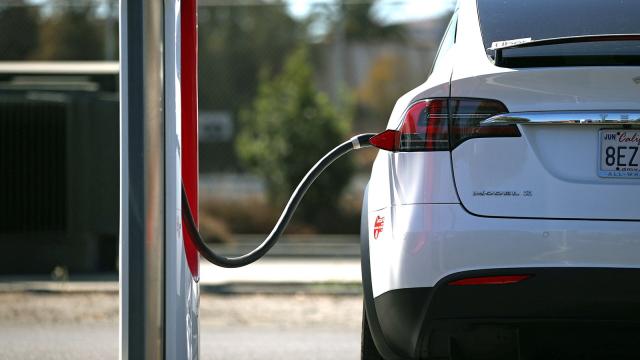When Tesla announced it’d begin selling insurance for owners in California, the company claimed it’d be able to offer rates up to 30 per cent lower than typical vendors. Early quotes from actual owners suggested that estimate was perhaps a bit optimistic, though those rates could become more competitive soon with a new “safety rating” feature a Reddit user is claiming that Tesla is working on integrating into its mobile app.
On the flip side, the possibility of cheaper insurance will seemingly come at the expense of Tesla monitoring your driving behaviours. And how you drive could alter your premiums by up to 50 per cent on a monthly basis, according to the individual’s findings.
The Reddit user in question, named Callump01, says they “reverse engineered” the Tesla app to uncover the safety rating system in development. Callump01 has shared insights gleaned from Tesla’s software in the past, particularly related to the company’s plans for a subscription service for its driver assist system. Those findings were validated by Reddit mods, so the source here would appear to be credible. Nevertheless, it’s always good practice to take matters like these with a helping of salt.
Theoretically, a driver’s safety rating would be based on the following factors. Those factors, in turn, would influence monthly rates.
The safety rating page will track your vehicle and is linked directly to your insurance. It will show the number of hours you’ve driven, how often you use AutoPilot, ABS events, forward collision warnings, autosteer strikeouts, accelerator variance, and many other metrics on both a per-trip and monthly basis which you’ll be able to see in a neat graphical interface. You are given a ‘pass’ or ‘fail’ rating (though it is unclear whether that rating will be visible to the end user) and, from what I can tell, appears to be exclusive to HW2 and above and software version 2021.4.12 is required.
Here’s more detail on the criteria Callump01 reportedly uncovered:
ABS Activation – Number of times ABS is activated
Hours Driven – Average daily driving time
Forced Autopilot Disengagements – Number of times Autopilot is disabled due to ignored alerts
Forward Collision Warnings – Number of times car detects a potential forward collision
Unsafe Following Time – Portion of time spent at an unsafe following distance
Intensity of Acceleration and Braking – Speed variance due to extreme acceleration and braking. Shown on a scale from 0-10 as measured against Tesla’s internal fleet.
Performance indicators are based on an average for that factor. The more factors you get into the green the more you’ll save on your premium. Your actual premium will not change more than 50% in a month based on your driving behaviour.
The Redditor notes that the safety rating functions within the app aren’t near completion yet. The page currently yields an empty screen with a loading animation.
Still, if all this bears out, it would reaffirm what Tesla has already indicated it wants to do with insurance: Deliver lower rates in exchange for heavy monitoring of all the data the manufacturer collects from its vehicles out on the road. This snippet from when the service was first announced alludes to the benefit of Tesla leveraging the information it has on its own products:
Tesla uniquely understands its vehicles, technology, safety and repair costs, and eliminates fees taken by traditional insurance carriers. By pricing policies to reflect Tesla’s active safety and advanced driver assistance features, which come standard on all new Tesla vehicles, Tesla Insurance is able to offer reduced insurance costs for many eligible owners.
Notably, the company also stated at the time that it would not “use nor record vehicle data, such as GPS or vehicle camera footage, when pricing insurance.” It appears neither GPS nor vision is a part of this safety rating criteria, at least based on what this Redditor has found. But things like ABS activation, Autopilot disengagements and acceleration and braking force still count as vehicle data.
And make no mistake, Tesla would be far from the first company to put this idea into practice. Many of the big insurance companies offer a similar option. For example, Progressive’s Snapshot keeps an eye on speed changes, as well as how much and when you drive. And there’s also a mobile app component that records when you use your phone as you’re driving to determine how likely you are to be distracted behind the wheel.
The difference between what those insurance providers are doing and what Tesla may be engaging in itself is that Tesla wouldn’t need any external software or OBD-II dongle to monitor your habits; it could just pull that info right from your vehicle.
With the growing number of elective usage-based insurance options out there, I’m wondering: How do y’all feel about the potential for a lower rate, or rates that could fluctuate by as much as half every month, in exchange for an insurance company snooping around all your car’s data? Is that a tradeoff you’d be willing to make?
